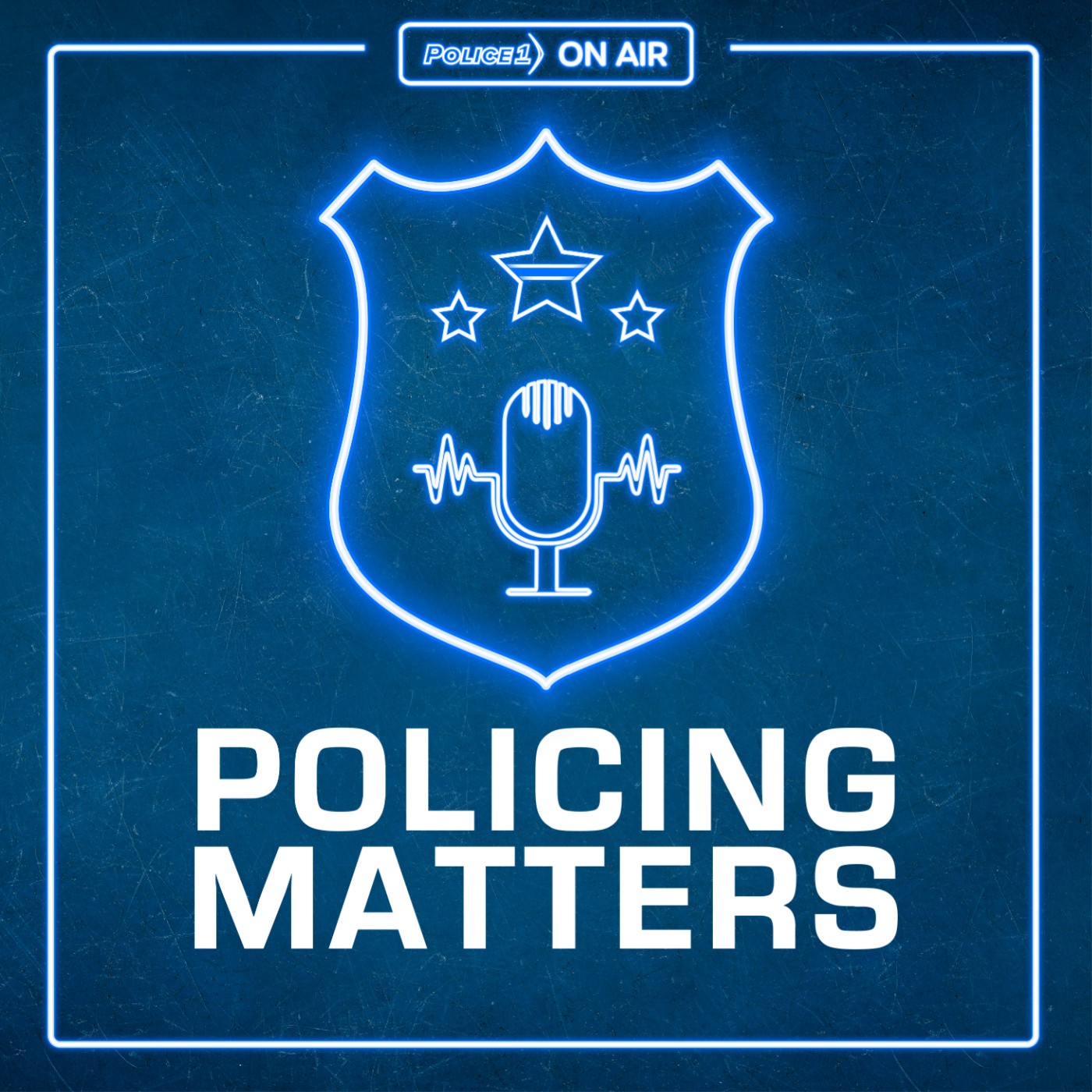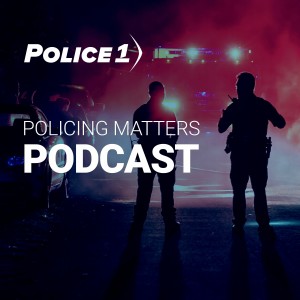
Talking the beat to cover what matters to you as an LEO. Join deputy chief Jim Dudley (ret.) every weekly as he sits down with law enforcement leaders and criminal justice experts to discuss strategy, challenges and trends in policing.
Episodes

Friday Aug 23, 2019
What does the Daniel Pantaleo firing mean for LE at large?
Friday Aug 23, 2019
Friday Aug 23, 2019
In mid-August, NYPD Police Commissioner James O'Neill fired Daniel Pantaleo—the New York City police officer accused in the 2014 death of Eric Garner—despite the fact that Pantaleo was cleared of any wrongdoing in the incident. Patrick Lynch—the president of the Police Benevolent Association—sent a message to officers that could very easily be construed as a signal of a work slowdown. "We are urging all New York City police officers to proceed with the utmost caution in this new reality, in which they may be deemed 'reckless' just for doing their job," Lynch said. In this podcast segment, Jim and Doug discuss how actions such as the firing of Dan Pantaleo fan the flames of the continuing trend of de-motivation and de-policing in America.

Friday Aug 16, 2019
Seemingly uncommon acts of police heroism are actually quite common
Friday Aug 16, 2019
Friday Aug 16, 2019
In mid-July, several acts of police heroism in which an officer saved the life of an infant or a toddler made headlines in the span of just a couple of days. This might lead one to conclude that there was a sudden uptick in such actions, but that conclusion would be inaccurate. The only uptick was in the media's coverage of those events. In this podcast segment, Jim and Doug discuss the fact that police heroics happen every day, and talk about the increasing need for police agencies to proactively tell those stories to counter the seemingly ongoing anti-police rhetoric in the public discourse.

Friday Aug 09, 2019
Should masks be banned at protests?
Friday Aug 09, 2019
Friday Aug 09, 2019
Following violent protests that left several people injured—including a conservative journalist who was badly beaten by protesters, the chief of police in Portland, Oregon suggested that the city pass a law that bans the wearing of masks during protests. Citing the fact that other states have laws prohibiting the wearing of masks during the commission of a crime, Portland Police Chief Danielle Outlaw suggested that the city institute the restrictions on masks at protests and demonstrations. The Oregon ACLU opposes the proposal—they do tend to side politically with the people who tend to wear masks at rallies—but others in both government and private sectors see some benefit to the idea. In this podcast segment, Jim and Doug discuss whether or not such a proposal would even pass in the City of Roses.

Thursday Aug 01, 2019
Thoughts on the Ariz. Starbucks brew haha
Thursday Aug 01, 2019
Thursday Aug 01, 2019
On Independence Day six police officers were approached by a Starbucks employee in Tempe, Arizona and told their presence was making another customer "uncomfortable." They were told they could relocate or leave. They decided to leave. News of this incident soon hit social media, and a firestorm ensued, with officers across the country calling for a boycott of the coffee chain. In this podcast segment, Jim and Doug discuss the incident itself, and the online outrage that followed.

Friday Jul 26, 2019
New AI tool seeks to eliminate racial bias in prosecutions
Friday Jul 26, 2019
Friday Jul 26, 2019
San Francisco District Attorney George Gascon recently announced a new artificial intelligence tool that will automatically redact from police reports any information that would indicate the race of an individual accused of a crime. He wants to eliminate any influence of racial bias in the decision-making process as to whether or not charges should be pursued or dropped in a given case. Attorneys will make a preliminary decision based on the redacted report, and then a final decision after reading the unreacted version. In this podcast segment, Jim and Doug discuss this new technology, as well as what the San Francisco DA's motives might be in deploying it.

Friday Jul 19, 2019
The incredible shrinking squad car
Friday Jul 19, 2019
Friday Jul 19, 2019
At a time when it seems that officers are getting bigger and bigger in physical stature, the compartment they occupy in their patrol vehicles keeps getting smaller and smaller. The vehicles themselves are in many cases smaller than the trusty old Crown Vics of old, and they're being stuffed with an ever-increasing amount of aftermarket equipment like MDTs. In this podcast segment, Jim and Doug discuss this trend and debate the merits of looking at going to more SUVs that will allow for those hefty cops to be more comfortable behind the wheel.

Friday Jul 12, 2019
Leadership stepping up on suicide prevention
Friday Jul 12, 2019
Friday Jul 12, 2019
Last month, the New York Police Department suffered three deaths by suicide in the span of ten days. That string of tragedies prompted NYPD Commissioner James O'Neill to call for officers to not be afraid to seek help if they need it. "This is a mental-health crisis," O'Neill said. "And we – the NYPD and the law enforcement profession as a whole – absolutely must take action." Meanwhile, in Chicago, that department held a two-day symposium on suicide prevention. In this podcast segment, Jim and Doug discuss if the stigma of seeking help has finally been smashed.

Friday Jul 05, 2019
Are legalized psilocybin mushrooms the next big thing?
Friday Jul 05, 2019
Friday Jul 05, 2019
Oakland recently became the second city in the United States—Denver is the other one—to decriminalize the consumption and ingestion of psilocybin mushrooms, recognized by the federal government as a schedule one drug. Schedule one drugs are defined as drugs with a high potential for abuse or drugs that have no recognized medical uses. However, advocates of this movement argue that these naturally occurring fungi have been used by many cultures for centuries for religious and medical purposes, and that argument prevailed by a narrow margin in a city council vote. In this podcast segment, Jim and Doug discuss the matter and what it means for law enforcement in the Bay Area.

Friday Jun 28, 2019
Tips for patrolling in summer
Friday Jun 28, 2019
Friday Jun 28, 2019
Patrolling in the summer months can have some additional challenges, particularly in areas where the heat can become downright unbearable. For whatever reason — the heat, the over consumption of alcohol, family disputes, or some combination — there seems to be an uptick in violent crime. Kids are more likely to be struck by vehicles because they're not in school. In this podcast segment, Jim and Doug discuss some things to keep in mind as you're out on patrol in the summer months.

Friday Jun 21, 2019
How to work well in multi-disciplinary scenarios
Friday Jun 21, 2019
Friday Jun 21, 2019
Police and firefighters have a lot of fun with the "guns 'n hoses" rivalry, but in reality there are myriad calls for service which require the response of all public safety disciplines (as well as some city and civilian services at times as well). In this podcast segment, Policing Matters podcast co-host Doug Wyllie sits down with Justin and Jason (a firefighter/paramedic and a motorcop, as well as co-hosts of the What's Your Emergency podcast) to discuss how all the public safety disciplines can work better together.
